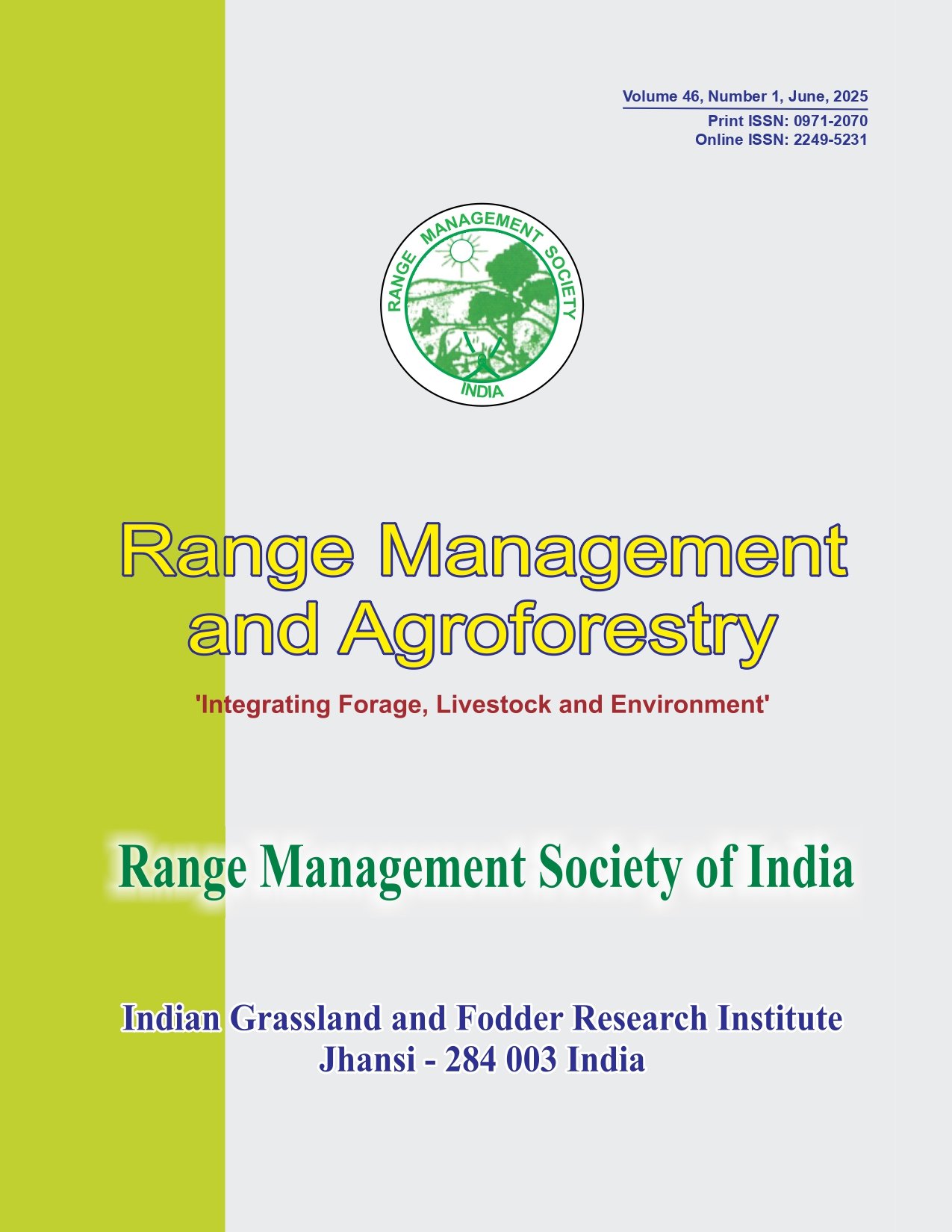Genetic variability for seed ageing and longevity among the forage sorghum cultivars
Keywords:
Accelerated ageing, Forage sorghum, Genetic variability, Longevity, Seed vigourAbstract
Nine popular forage sorghum cultivars released in India were evaluated for seed vigour and longevity traits under accelerated ageing and natural storage conditions, aimed to examine the genetic variation, heritability and relationships among seedling vigour traits. The results on variability for fungus free seed (%) revealed the association with seed ageing. The traits seed germination, field emergence and seedling vigour were much affected due to accelerated ageing and natural storage for three years, compared to the seeds stored for one year and two years. The study revealed that most forage sorghum cultivars [except PC 6 (69%)] had the seed germination ranging from 75 to 90% with a mean of 80% after two years of storage indicating that the revalidation may not be required at least for 18 months in these cultivars as per seed certification standards of sorghum (75% seed germination) in India. Seedling dry weight and seedling vigour index showed all high values of phenotypic and genotypic coefficients of variation (PCV and GCV), heritability (h2 -bs) and genetic advance over mean (GAM) for all categories of fresh, accelerated aged, one year old, two years old and three years old seeds. The field emergence had moderate positive genetic and phenotypic correlations with seed hardness (0.49, 0.44), and high correlation (0.78, 0.67) with seed germination of fresh seeds. Field emergence showed moderate to high positive association with all traits studied in case of accelerated aged and three years old seed categories.




